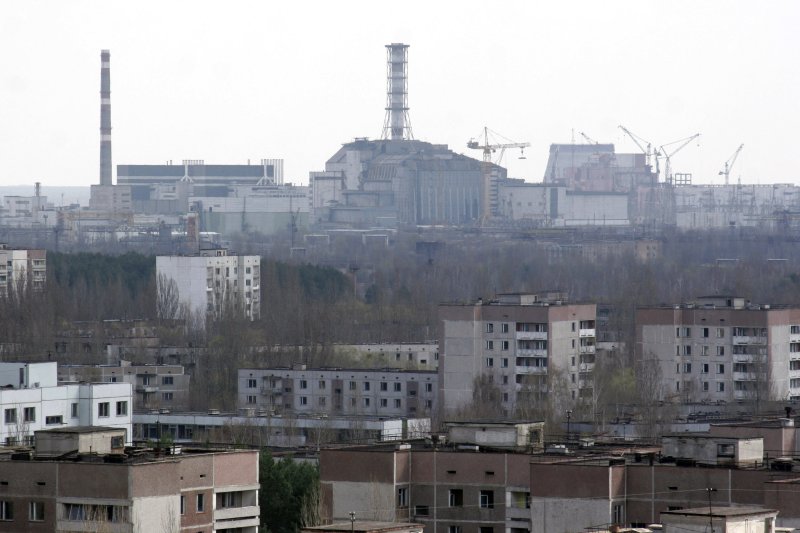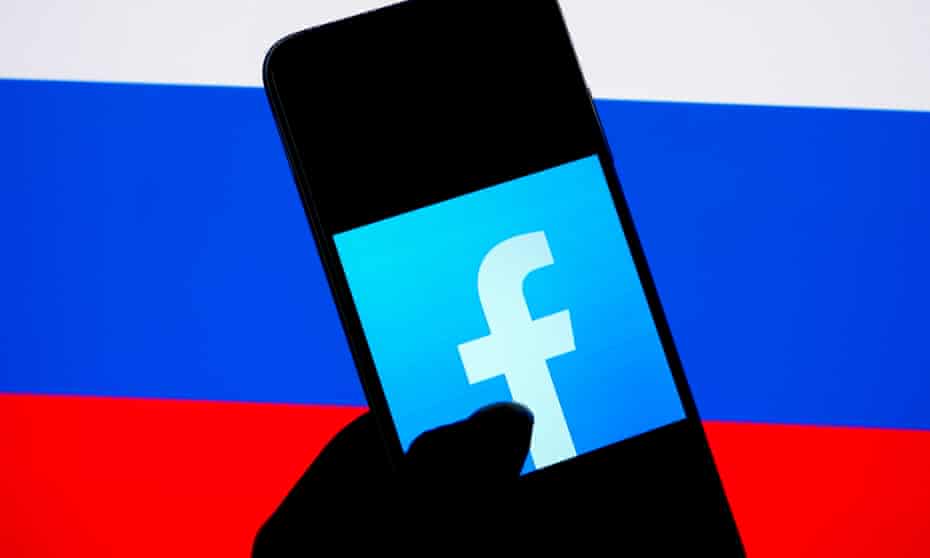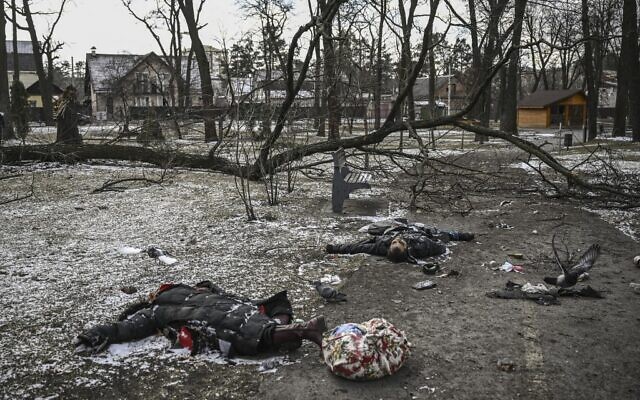In late February Russian troops invading Ukraine occupied the defunct Chernobyl nuclear power plant, site of the worst nuclear disaster in history, and took over an exclusion zone that houses decommissioned reactors and radioactive waste facilities.
Since then, the 210 technicians and guards responsible for keeping it safe have not taken a proper break.
The International Atomic Energy Agency (IAEA), the United Nations body responsible for nuclear security, says a key pillar of nuclear safety is giving operating staff the capacity to make decisions free of "undue pressure." But overworked staff at Chernobyl are trying to fulfil their duties amid an invasion that has already forced 2 million people to flee.
A combination of factors has increased fears of radioactive leaks from the Chernobyl site. But there is no chance of a nuclear meltdown — the last reactor was closed more than two decades ago. For now, the main concerns are for staff.
"I'm deeply concerned about the difficult and stressful situation facing staff at the Chernobyl nuclear power plant and the potential risks this entails for nuclear safety," said IAEA Director General Rafael Grossi in a press statement Tuesday. "I call on the forces in effective control of the site to urgently facilitate the safe rotation of personnel there."

The abandoned city of Pripyat near Chernobyl
Communications and power failures
Compounding the concerns are problems with communications and electricity.
On Tuesday, the IAEA said data transmission from monitoring systems installed at Chernobyl had been lost and Ukraine's regulatory authority could only communicate with the plant via email. State-run nuclear energy company Ukrenergo reported Wednesday that a high-voltage electricity line connecting Kyiv and Chernobyl had been disconnected. That has forced workers to rely on diesel generators for electricity and there are concerns it could disrupt the cooling pumps for spent fuel.
Radioactive fuel rods continue to heat up after they have been taken out of reactors and need to be chilled in water for years before they can be moved to dry storage facilities. More than 20,000 spent fuel rods are sitting in wet and dry storage facilities at the site.

A massive steel and concrete structure contains nuclear reactor 4 at the Chernobyl power plant
If the cooling pools were to dry out, the radiation could hurt workers. But experts said a large release of radiation akin to the 1986 disaster is unlikely and would not "have consequences outside the plant site."
"It is also important to note that drying out of the ponds will not cause a nuclear reaction or explosion to occur," said Mark Foreman, associate professor of nuclear chemistry at Chalmers University of Technology in Sweden, in a statement.
A report from the Ukrainian state regulator in 2011 stress-tested different scenarios that could lead to failure. It found that if electricity were cut, the loss of the pool water cooling function would raise temperatures — but not by enough to cause an accident.
In a tweet on Wednesday, the IAEA confirmed the heat load of the spent fuel storage pool and the volume of cooling water was enough to effectively remove heat without the need for electricity.
"The spent fuel there is so old that evaporation will not likely be the problem," said Jan Haverkamp, a nuclear expert at environmental campaign group Greenpeace. Still, he added, "an explosion hitting the pool could cause overheating."
The loss of electricity could also hit the ventilation system and make it harder to manage radioactive dust.
"It may become much harder for workers to enter some parts of the site without full protective clothing," said Foreman. "They may also have greater difficulty in changing in and out of their protective clothing. Some parts of the site might become off limits to the workers until the power is restored."
Nuclear safety
Russian President Vladimir Putin's decision to fully invade Ukraine in February has thrown the security of nuclear power into the spotlight.
"If there is a nuclear accident the cause will not be a tsunami brought on by mother nature," said Grossi on Monday, referring to the earthquake that flooded the reactor of the Fukushima Daiichi nuclear power plant in Japan in 2011. "Instead, it will be the result of human failure to act when we knew we could."

Chernobyl is a powerful symbol of nuclear catastrophe. In 1986, a sudden surge of power during a reactor test destroyed Unit 4 of the poorly designed nuclear power station, in what was then part of the Soviet Union. The fire that followed released clouds of radioactive material into the environment that led to authorities setting up an exclusion zone and evacuating hundreds of thousands of people. Dozens are thought to have died as a direct result of the disaster.
Radiation levels have since fallen. Some residents of the exclusion zone have returned to their homes and live in areas with levels that are above average but not fatal. Radiation unexpectedly spiked in February when Russian troops entered the area, possibly because of heavy vehicles raising a layer of topsoil and kicking dust up into the air.
The IAEA found the levels pose no danger to the public. But the unprecedented reality of war in a country operating nuclear power stations has raised the specter of nuclear catastrophe.
The Russian army shelled Europe's largest nuclear power plant last week before taking over the site. Though there was no safety incident, it was the first time that military explosives have hit an operating nuclear facility.
"We've entered something that that the industry was in complete denial of," said Haverkamp. "Nuclear power is just not an energy source that belongs in a war situation."
Edited by: Jennifer Collins
IAEA: Ukraine has lost communications
with Chernobyl nuclear plant

Ukrenergo, Ukraine's national electricity operator, said that the plant remains disconnected from the national power grid and will stay that way until Russian forces allow safe passage for repair workers.
File Photo by Sergey Starostenko/UPI | License Photo
March 10 (UPI) -- Ukraine has lost all communications with the Chernobyl nuclear power station, the United Nations' nuclear watchdog said Thursday, a day after heavy Russian shelling cut all external power to the plant.
Rafael Mariano Grossi, director general of the International Atomic Energy Agency, said the site had been able to communicate with the site by email and before it lost the ability to do so the regulator said the plant's power lines had been damaged in shelling from the day before, disconnecting it from the power grid.
However, there have since been reports that power has been restored at the site but IAEA said it was looking for confirmation.
State-run power company Ukrenergo has not commented on the reports but said earlier Thursday that the plant is running on emergency diesel generators, but the fuel is limited. Chernobyl's cooling, ventilation and fire-extinguishing systems -- all vital in the running of the nuclear power plant safely -- are powered by the damaged line.
RELATED Officials fear possible radiation leak after Chernobyl nuclear plant loses power in Ukraine
The regulator told IAEA that the generators hold a two-day supply of fuel and were powering systems important to safety, including those for spent nuclear fuel as well as water control and chemical water treatment.
Grossi said that in order to maintain power at the site either the lines need to be repaired or supplies of diesel be delivered to refuel the generates.
The IAEA assured that the plant being disconnected from the grid "will not have a critical impact on essential safety functions at the site" with the regulator also informing the watchdog that if the generators die and the power is not restored the safety systems would continue to be in place.
RELATED IAEA loses contact with safeguards monitoring systems at Chernobyl nuclear plant
If all emergency power was lost, the regulator said it would be able to monitor the spent fuel pool but under worsening radiation safety conditions due to a lack of ventilation at the facility.
The volume of cooling water used to remove heat from spent nuclear fuel was "sufficient" despite being without electricity and the systems and structures for the pool were not damaged in the attack, the IAEA said.
Heavy Russian shelling damaged the high-voltage power lines to the plant on Wednesday, and crews have not yet been able to repair it due to sustained Russian assaults in the area.
RELATED Indie game bundle to aid Ukraine raises over $1M
Ukrenergo said that the plant remains disconnected from the national power grid and will stay that way until Russian forces allow safe passage for repair workers.
Ukrainian officials said it has declined an offer from Belarus, a chief Russian ally in the war in Ukraine, of helping to restore power to the station.
"Ukrenergo does not need the assistance of the Belarusian side in repairing the high-voltage line, damaged by the Russian shelling, that fed Chernobyl nuclear power plant," the state-run power company said Thursday in a translated message on Facebook.

Soviet workers in protective gear take radiation measurements in the area surrounding the Chernobyl nuclear power plant, which is in present-day Ukraine, after the explosion on April 26, 1986. UPI Photo/File/INS
"We need a cease-fire and the admission of our repair teams, who have been waiting for an agreement to leave for repairs since [Wednesday].
"We are ready to immediately repair the lines and restore power to Chernobyl nuclear power plant, which has been without electricity for more than a day. Just stop the shelling and let our teams do their job."
Ukrainian Deputy Prime Minister Iryna Vereshchuk has called for a safe corridor to allow utility workers to enter the area and make the repairs.
"We demand that a repair team immediately be allowed access to get rid of the damage," Vereshchuk said, according to The Washington Post. "We ask the global community to focus its attention on this problem."
Russian forces seized control of the Chernobyl plant immediately after launching its invasion on Feb. 24. And the workers at the site have not been able to rotate since, with Grossi having repeatedly warned that this is compromising "a vital safety pillar."
Located about 70 miles northwest of Kyiv, the plant was the site of one of the world's worst nuclear accidents in 1986 when a reactor exploded and sent radiation across Europe.
LA REVUE GAUCHE - Left Comment: Search results for CHERNOBYL



















